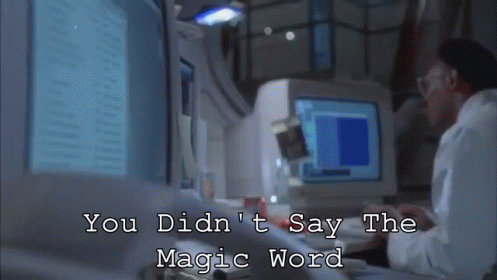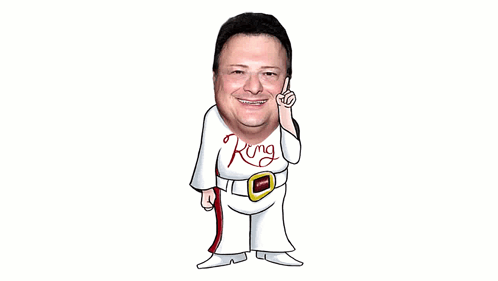
Didn T Say The Magic Word Gif Jurrasicpark Samuelljackson Magicword Jurassic park magic word clip dennis nedry "access main program. access main security. access main program grid" "ah ah ah, you didn't say the magic word" more. Listen & share magic word jurassic park. ah ah ah! you did not say the magic words. 7,344 views. . find more instant sound buttons on myinstants!.

Pin By Holly S Home On Jurassic Park Jurassic Park Characters You didn't say the magic word. — dennis nedry (wayne knight) 5 seconds sound clip from the jurassic park (1993) movie soundboard. you can hear this line at 01:00:02 in the blu ray version of the movie. [ ] no, no. they're still on. why the hell would he turn the other ones off? access main program. access main security. The perfect jurassic park you didnt say the magic word animated gif for your conversation. discover and share the best gifs on tenor. Download 'you didn't say the magic word' from jurassic park. hd video clip (9s) perfect for reactions, memes & social content. watch preview or download now. After attempting to bring the systems back online, the computer denies access and shows a screen of nedry. nedry says the memorable line "ah ah ah, you didn't say the magic word! [repeating ah ah ah]". community content is available under cc by sa unless otherwise noted.

Jurassic Park 1993 Ah Ah Ah You Didn T Say The Magic Word Youtube Download 'you didn't say the magic word' from jurassic park. hd video clip (9s) perfect for reactions, memes & social content. watch preview or download now. After attempting to bring the systems back online, the computer denies access and shows a screen of nedry. nedry says the memorable line "ah ah ah, you didn't say the magic word! [repeating ah ah ah]". community content is available under cc by sa unless otherwise noted. A great memorable quote from the jurassic park movie on quotes dennis nedry: ah ah ah, you didn't say the magic word. ray arnold: *please*! goddammit!. There, billionaire philanthropist john hammond and a small team of genetic scientists have created a wildlife park of de extinct dinosaurs. Um, i'll tell you the problem with the scientific power that you're using here, it didn't require any discipline to attain it. you read what others had done and you took the next step. Listen & share you didn't say the magic word!. you didn't say the magic word!. 2,043 views. . find more instant sound buttons on myinstants!.

You Didn T Say The Magic Word Jurassic Park Gif You Didn T Say The A great memorable quote from the jurassic park movie on quotes dennis nedry: ah ah ah, you didn't say the magic word. ray arnold: *please*! goddammit!. There, billionaire philanthropist john hammond and a small team of genetic scientists have created a wildlife park of de extinct dinosaurs. Um, i'll tell you the problem with the scientific power that you're using here, it didn't require any discipline to attain it. you read what others had done and you took the next step. Listen & share you didn't say the magic word!. you didn't say the magic word!. 2,043 views. . find more instant sound buttons on myinstants!.